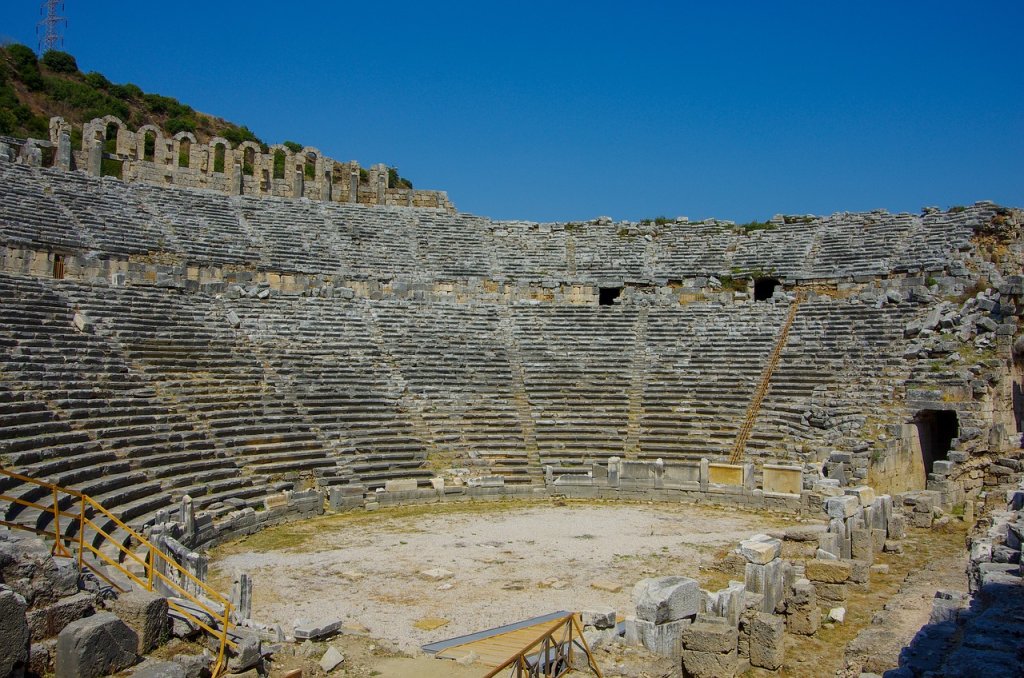
Battles in the Donbas trenches and across the Black Sea waters keep raging as the belligerents persist with their strategies of attrition. Neither President Volodymyr Zelensky’s defiant presentation at the Munich Security Conference, nor President Vladimir Putin’s address to the Federal Assembly contained any indication of readiness to compromise. Notwithstanding this determination to keep the war going, three separate tracks for exploring the options for peace talks are showing new signs of activity.
The “peace formula” suggested by Zelensky back in October 2022, is elaborated by various international working groups in preparations for a high-level conference, which Switzerland aims to stage “by the summer.” Li Hui, China’s government special representative for Eurasia, performed a new European tour, starting in Moscow. He missed Russian Foreign Minister, however, because Sergei Lavrov was partaking in the Antalya Diplomacy Forum. This high-profile event had many issues, besides the Ukraine war, on its rich agenda. The Chinese envoy, apparently, didn’t deliver any new incentives for the year-old “peace plan”, which wasn’t exactly conducive to bringing the parties to the conflict to a common ground. A moderate success of the conference in Switzerland is by no means guaranteed as Moscow works hard to undermine it. What is then the rationale behind the competing peace-making efforts?
The beginning of the answer may be found in the fact that the three tracks lead to very different peace arrangements. The Chinese initiative appears to presume that the deadlocked war would compel the exhausted parties to agree on a ceasefire, which would then mature to a stable cessation of hostilities more or less along the existing trench-lines. The “Korean model” would provide the general parameters for such pacification, but there are two obvious problems with this proposition. The first one is that it is the presence of US troops in South Korea that ensures the stability of the ceasefire, while the permanent basing of NATO forces in Ukraine is hardly feasible. The second issue is that North Korea has mutated into a dangerous rogue state, and the prospect of Russia following a similar path is very disturbing for its European neighbors.
In a sharp contrast, the Ukrainian diplomacy starts from the imperative of full liberation of all territories occupied by Russia, which at the moment may appear rather theoretical. The deliberations on Zelensky’s plan have, nevertheless, engaged remarkably wide circle of international stakeholders, and if the discussions at the Malta meeting last October were perhaps less productive than at the previous meeting in Jeddah in August, preparations for the summit in Switzerland are intense and meticulous.
Turkish diplomacy maneuvers somewhere between these two tracks. While Ankara is committed to the common NATO position on supporting Ukraine for “as long as it takes” to restore its territorial integrity, it also suggests that this long-term goal can be achieved by political, rather than exclusively military means. Restoration of the status quo ante bellum could be a useful provisional goal in this process, and this proposition was actually on the table of the talks in Ankara in spring 2022, derailed by the exposure of war crimes after the retreat of Russian troops from the suburbs of Kyiv.
Progress on the road to peace depends decisively, if not entirely, upon the course of on-going high-intensity battles, and the three competing initiatives envision different outcomes. China presumes that the war has taken its definite stalemate shape and that no more surprises are in the making. Ukraine believes that the nadir in its capacity to withstand Russian attacks was marked with the fall of Avdiivka and the new increases in Western military support will empower its forces to re-capture the strategic initiative. Türkiye is a major contributor of weapons to the unsteady flow of aid to Ukraine, but it appears to assume that while Russian attacks yield scant results, its defenses are solid.
The perspective that differs starkly from these dissimilar views is the one that President Putin sticks to. He may declare readiness to talk about peace, meaning discussing conditions of Ukraine’s surrender, but in fact believes that a perpetual war answers the goal of ensuring survival of his regime just fine. Beijing may insist that negotiations on a peace settlement must include the Kremlin, and Putin may show deference to Chinese opinions, but in reality, he is not subscribing to the plan that Li Hui tried to sell in Brussels. Neither is he interested in Turkish initiatives, and while he called to congratulate President Recep Tayyip Erdogan with the 70th anniversary, the postponement of his visit to Ankara is just one sign on growing strains in bilateral relations.
Ukraine insists that peace negotiations with Putin make no sense whatsoever. This position may appear radical, but the clearly expressed determination of Western leaders to hold Putin personally responsible for the murder of Alexei Navalny, the defiant leader of the Russian opposition, has added credibility to this ostracism. Only a few marginal voices keep advocating for reopening channels of communication with the Kremlin, and Hungary’s Prime Minister Viktor Orban argues, including at the Antalya Diplomacy Forum, for ending the war by granting Russia a victory in Ukraine.
Time in the long war of attrition may appear to be in plentiful supply, but it tends to run unevenly and reach turning points at unpredictable moments. Putin radiates confidence that time is on his side, but even China doesn’t share this self-serving delusion, and so has opted to give a new impetus to its peace plan. Typically, it is the mutual exhaustion of the warring parties that makes a conflict ripe for a pause, in which a search for compromises becomes fruitful. In Ukraine’s war of liberation from the Russian aggression, signs of exhaustion are plentiful, but external mediators are watching more for risks of a possible escalation.
The tide of war may shift in Ukraine’s favor as Europe gathers resources and resolve to address both the immediate needs in ammunition and the mid-term demand for expanding the defense-industrial base. This change of fortune is certain to caught Putin unprepared and to make disgruntled Russian elites desperate. Neither China, nor Russia’s Western and Southern neighbors are ready to face the risks generated by such crisis, but their efforts at preventing it by promoting peace initiatives are still half-hearted, incoherent and under-funded.

Pavel K. Baev, Dr., Peace Research Institute, Oslo (PRIO)
Dr. Pavel K. Baev is a Research Professor at the Peace Research Institute, Oslo (PRIO). He is also Senior Non-Resident Fellow at the Center for the U.S. and Europe at the Brookings Institution (Washington D.C.), Senior Associate Researcher at the Institut Français des Relations Internationales(IFRI, Paris), and Senior Associate Research Fellow at the Italian Institute for International Political Studies (ISPI, Milan). His research interests include the transformation of the Russian military, the energy and security dimensions of the Russian-European relations, Russia’s Arctic policy, Russia-China partnership, post-Soviet conflict management in the Caucasus and the Caspian Basin, and Russia’s Middle East policy, which is supported by the Norwegian Foreign Ministry. He writes a weekly column in Eurasia Daily Monitor.
To cite this work: Pavel K. Baev, “Peace-making for Ukraine: The Swiss Track, the Chinese Pretence, and the Antalya Diplomacy Forum “, Panorama, Online, 08 March 2024, https://www.uikpanorama.com/blog/2024/03/08/pb-7/
Copyright@UIKPanorama. All on-line and print rights reserved. Opinions expressed in works published by the Panorama belongs to the authors alone unless otherwise stated, and do not imply endorsement by the IRCT, Global Academy, or the Editors/Editorial Board of Panorama.


